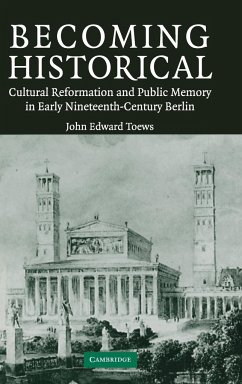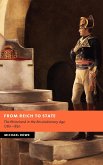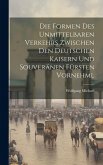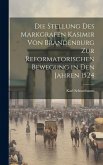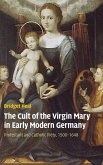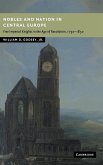Short description/annotation
Examines the ways in which selfhood and cultural solidarity came to be understood in 1800s Vienna.
Main description
This book examines the ways in which selfhood and cultural solidarity came to be understood and lived as historical identities during the 1800s. It examines the stages and conflicts in the process of 'becoming historical' through the works of prominent Prussian artists and intellectuals (Karl Friedrich Schinkel, Felix Mendelssohn, Jacob Grimm, Friedrich Karl von Savigny, Leopold von Ranke) who attached their personal visions to the reformist agenda of the Prussian regime that took power in 1840. The historical account of the evolution of analogous and inter-related commitments to a cultural reformation that would create communal solidarity through subjective identification with public memory is framed by the philosophical perspectives on historical selfhood provided by F. W. J. Schelling and his radical critics, Karl Marx and Søren Kierkegaard, thus drawing this story of building selves and communities in early nineteenth century Berlin into current debates about historical determined and contingently constructed identities.
Table of contents:
Part I. Philosophical Prologue: Historical Ontology and Cultural Politics; Schelling in Berlin, 1841-1845; Part II. Historicism in Power: 1840 and the Historical turn in Prussian Cultural Politics: 1. Nation, church, and the politics of historical identification: Frederick William IV's vision of cultural reformation; 2. 'Redeemed Nationality': Christian Bunsen and the transformation of ethnic peoples into ethical communities under the guidance of the historical principle; Part III. Architectural and Musical Historicism: Aesthetic Education and Cultural Reformation: 3. Building historical identities in space and stone: Schinkel's search for the shape of ethical community; 4. The generation of community from the spirit of music: Mendelssohn's musical constructions of historical identity; Part IV. Law, Language, and History: Cultural Identity and the Self-Constituting Subject in the Historical School: 5. The tension between immanent and transcendent subjectivity in the historical school of law: from Savigny to Stahl; 6. The past as a foreign home: Jacob Grimm and the relation between language and historical identity; 7. Ranke and the ideology of the Christian-German State: contested historical identities and the transcendent foundations of the historical subject; Part V. Anti-Philosophical Epilogue: Historicizing self-identity in Kierkegaard and Marx, 1841-1846.
Examines the ways in which selfhood and cultural solidarity came to be understood in 1800s Vienna.
Main description
This book examines the ways in which selfhood and cultural solidarity came to be understood and lived as historical identities during the 1800s. It examines the stages and conflicts in the process of 'becoming historical' through the works of prominent Prussian artists and intellectuals (Karl Friedrich Schinkel, Felix Mendelssohn, Jacob Grimm, Friedrich Karl von Savigny, Leopold von Ranke) who attached their personal visions to the reformist agenda of the Prussian regime that took power in 1840. The historical account of the evolution of analogous and inter-related commitments to a cultural reformation that would create communal solidarity through subjective identification with public memory is framed by the philosophical perspectives on historical selfhood provided by F. W. J. Schelling and his radical critics, Karl Marx and Søren Kierkegaard, thus drawing this story of building selves and communities in early nineteenth century Berlin into current debates about historical determined and contingently constructed identities.
Table of contents:
Part I. Philosophical Prologue: Historical Ontology and Cultural Politics; Schelling in Berlin, 1841-1845; Part II. Historicism in Power: 1840 and the Historical turn in Prussian Cultural Politics: 1. Nation, church, and the politics of historical identification: Frederick William IV's vision of cultural reformation; 2. 'Redeemed Nationality': Christian Bunsen and the transformation of ethnic peoples into ethical communities under the guidance of the historical principle; Part III. Architectural and Musical Historicism: Aesthetic Education and Cultural Reformation: 3. Building historical identities in space and stone: Schinkel's search for the shape of ethical community; 4. The generation of community from the spirit of music: Mendelssohn's musical constructions of historical identity; Part IV. Law, Language, and History: Cultural Identity and the Self-Constituting Subject in the Historical School: 5. The tension between immanent and transcendent subjectivity in the historical school of law: from Savigny to Stahl; 6. The past as a foreign home: Jacob Grimm and the relation between language and historical identity; 7. Ranke and the ideology of the Christian-German State: contested historical identities and the transcendent foundations of the historical subject; Part V. Anti-Philosophical Epilogue: Historicizing self-identity in Kierkegaard and Marx, 1841-1846.

